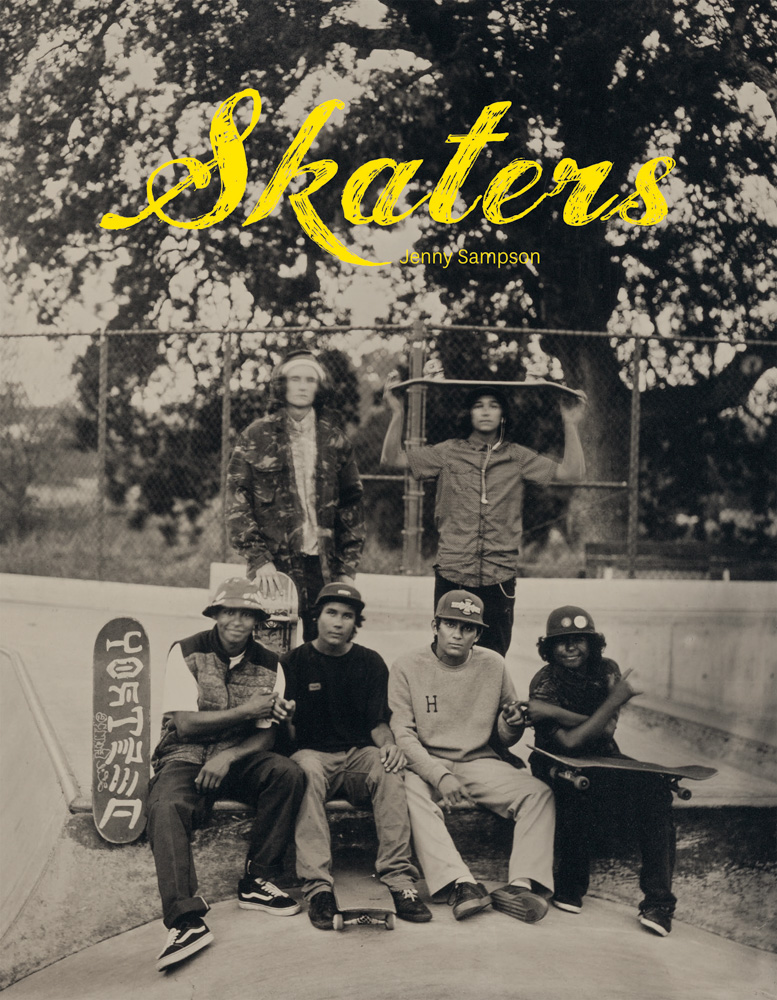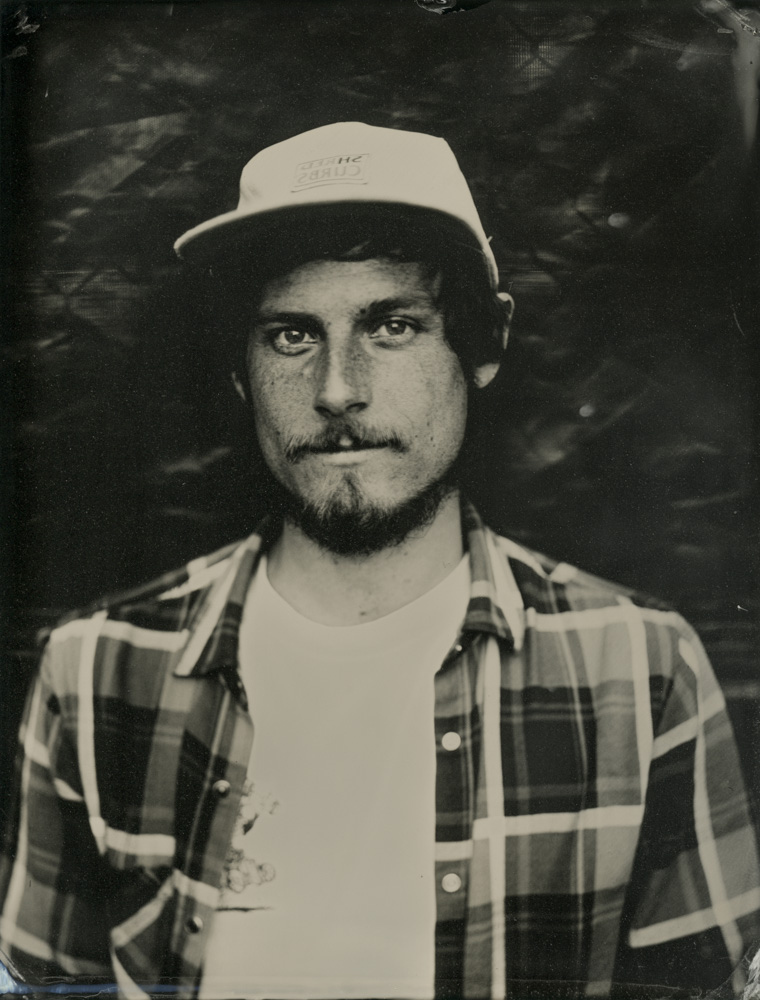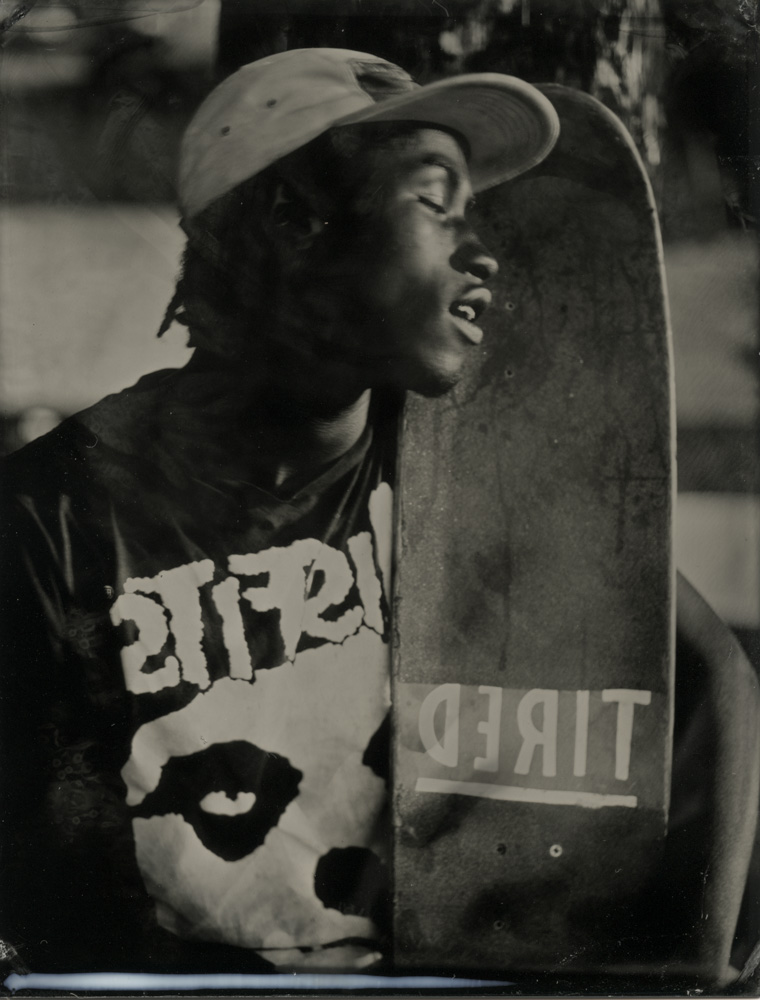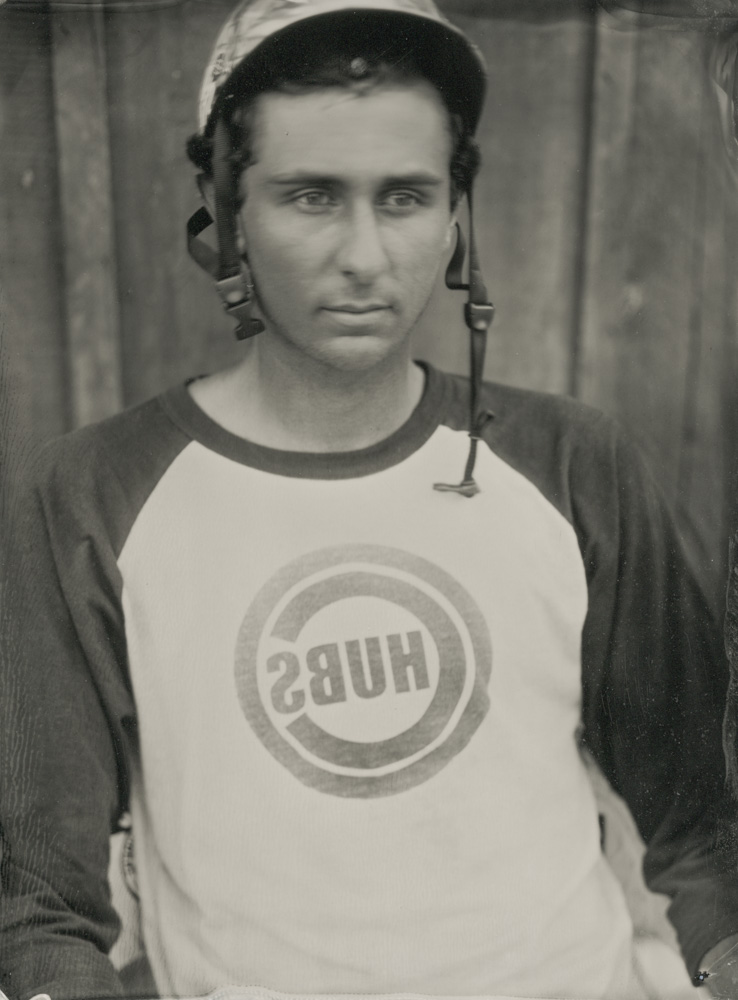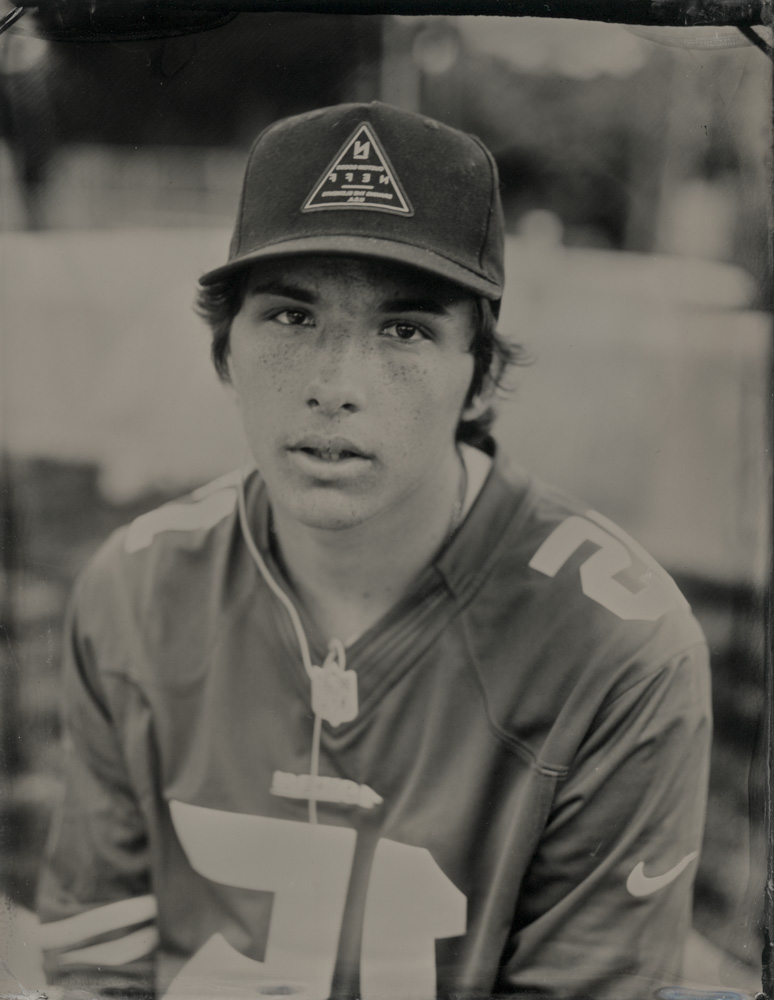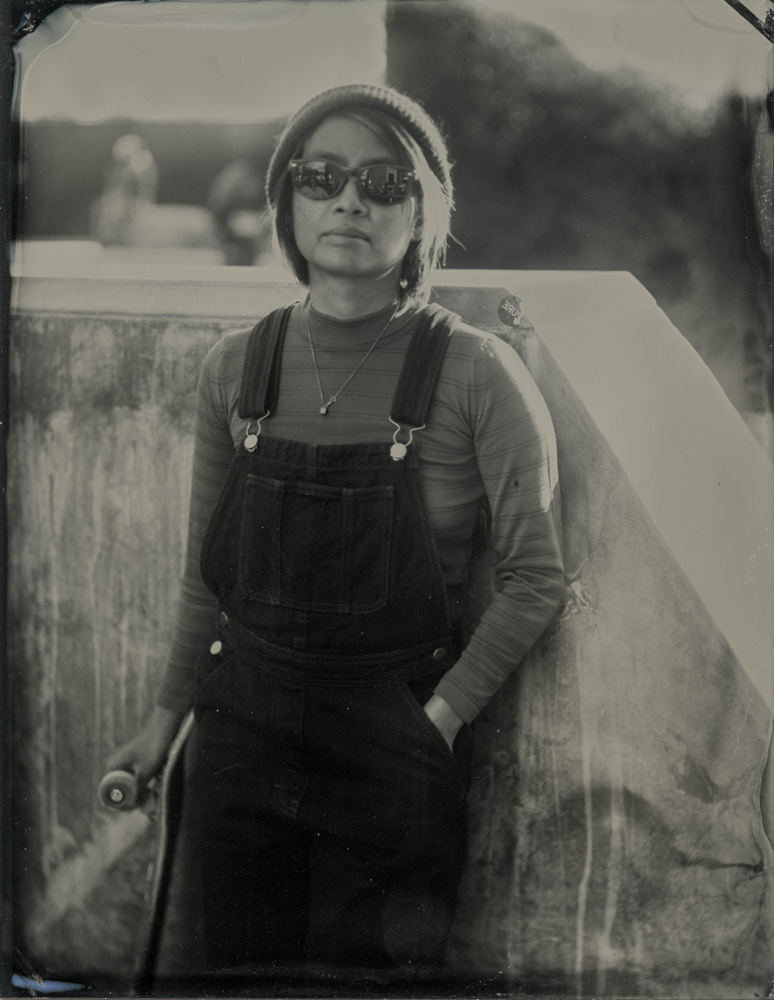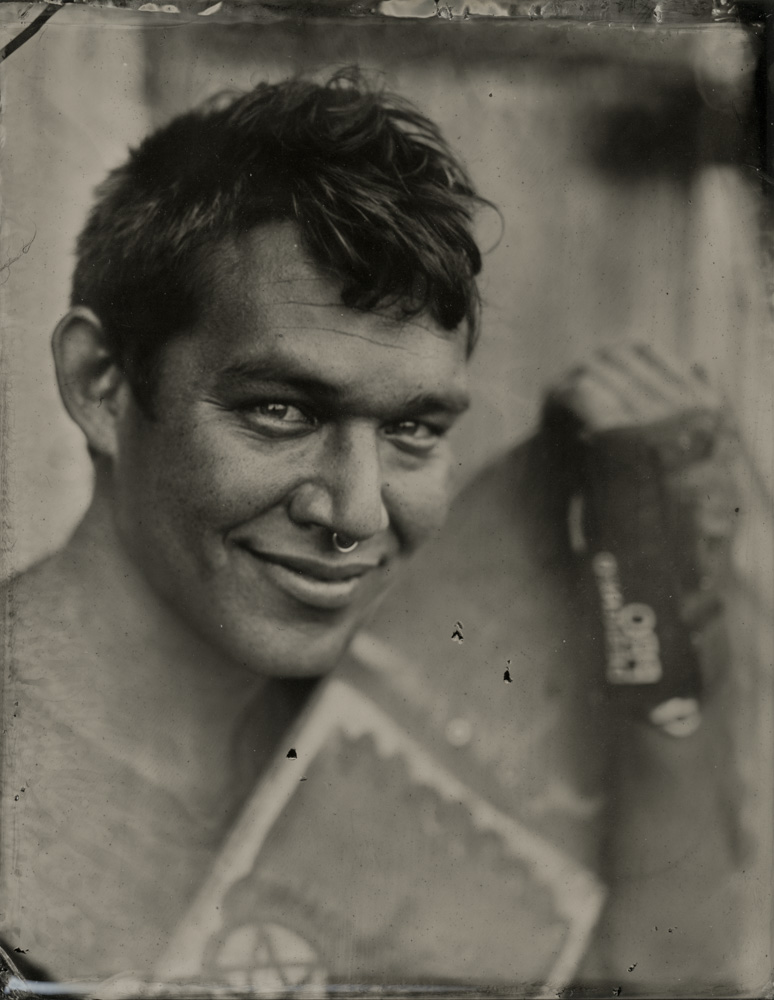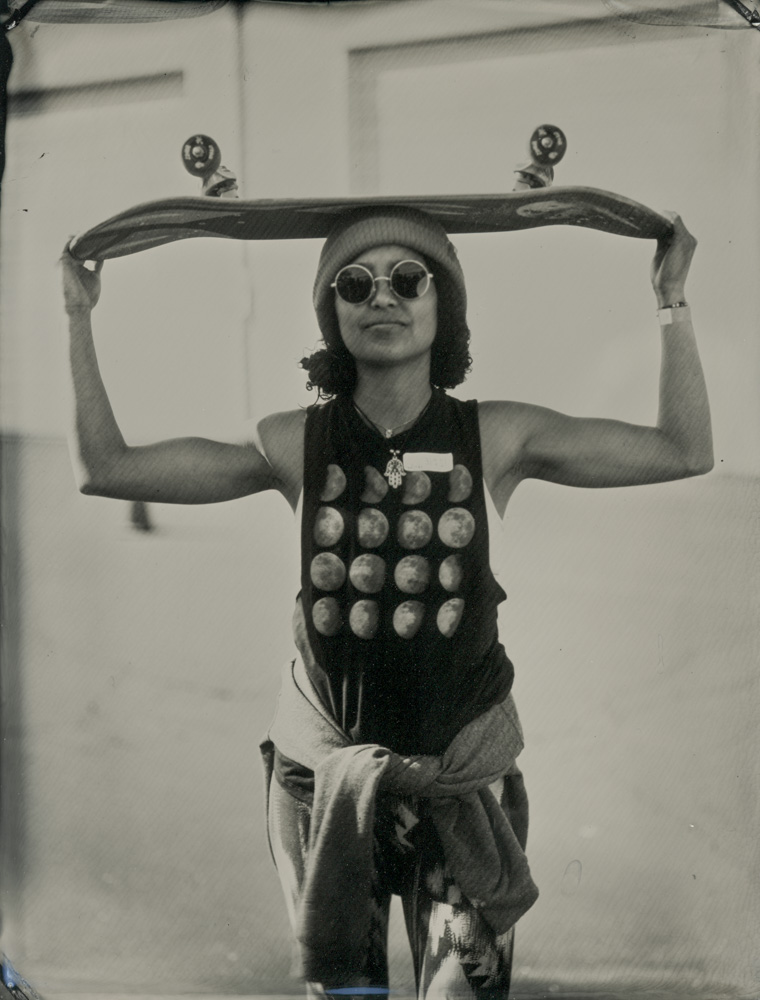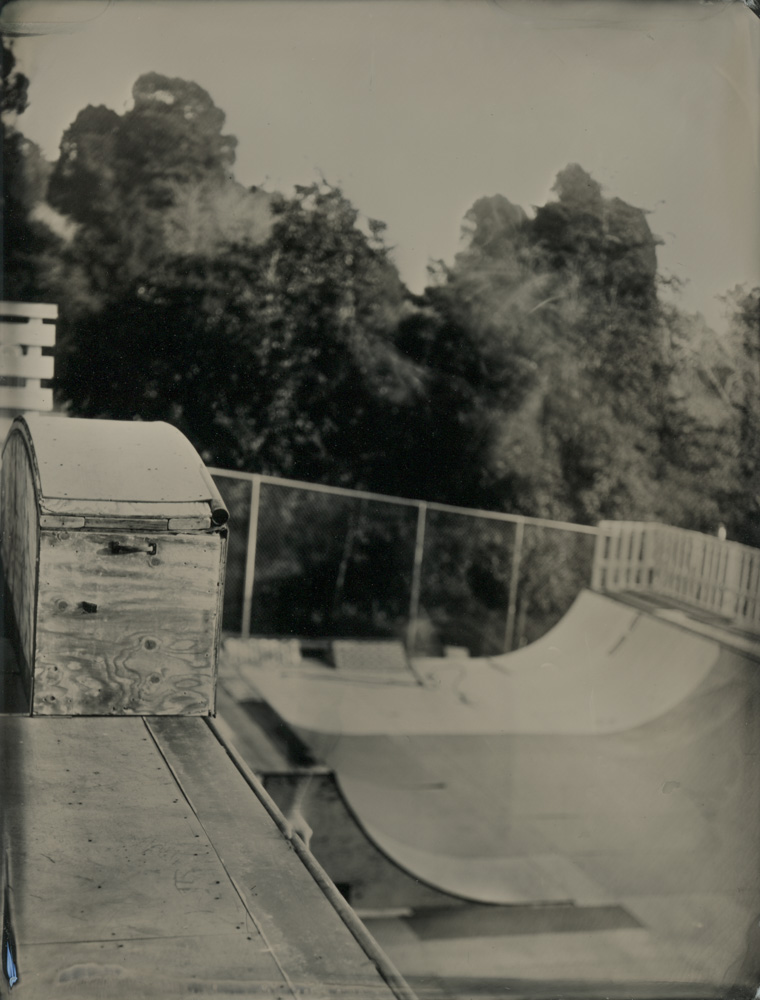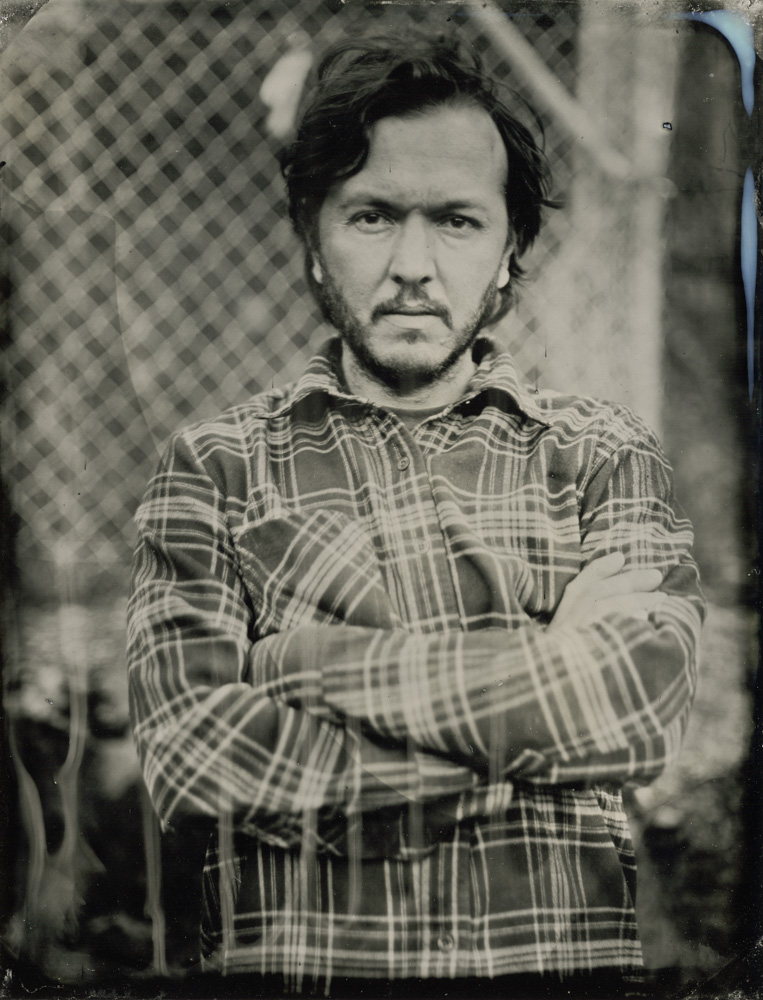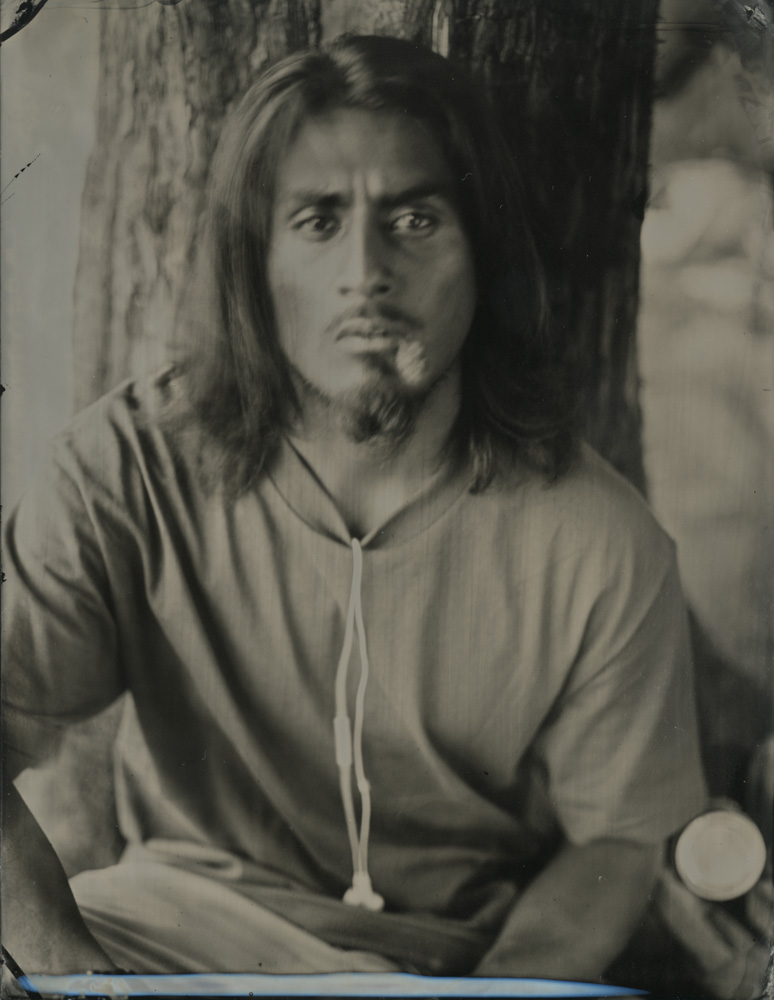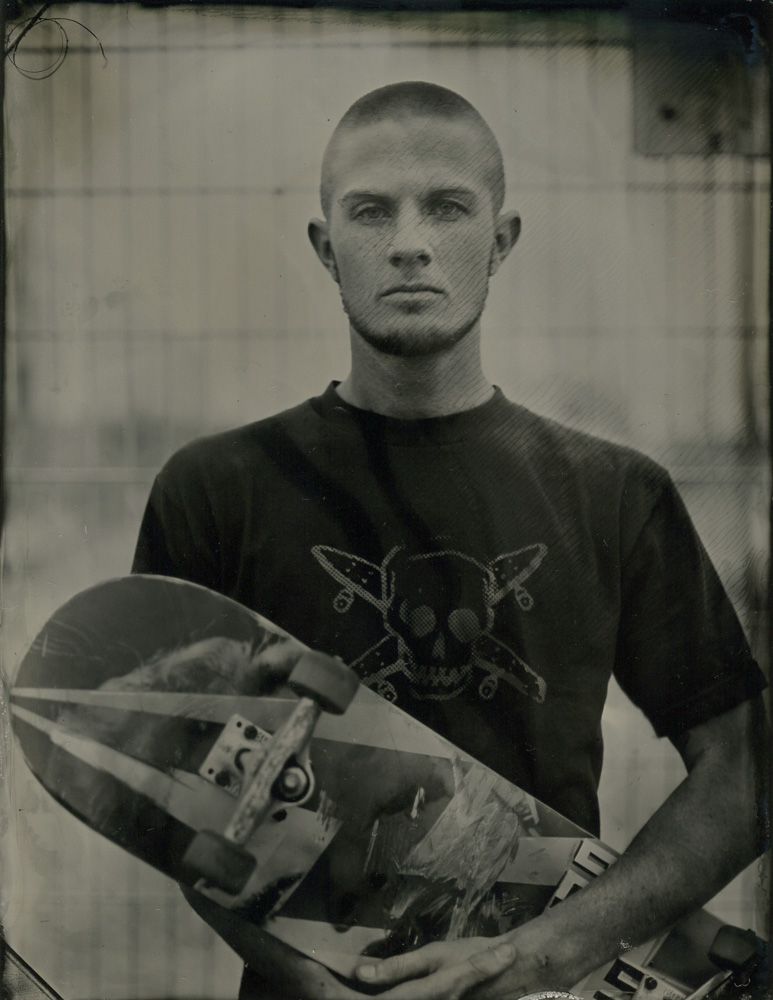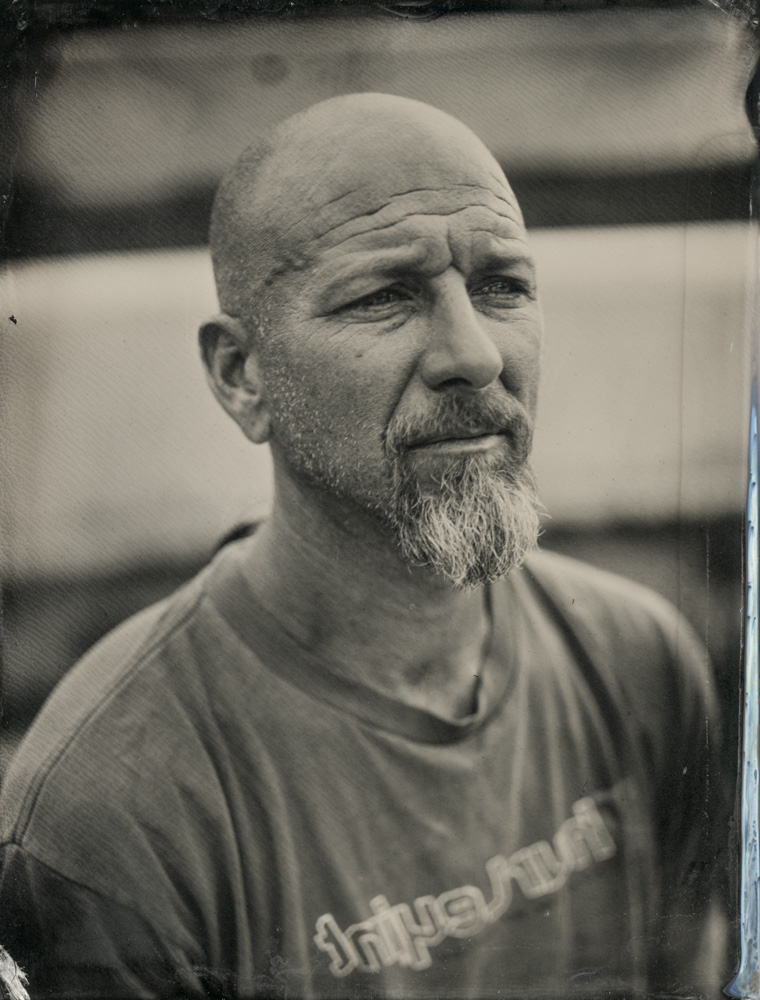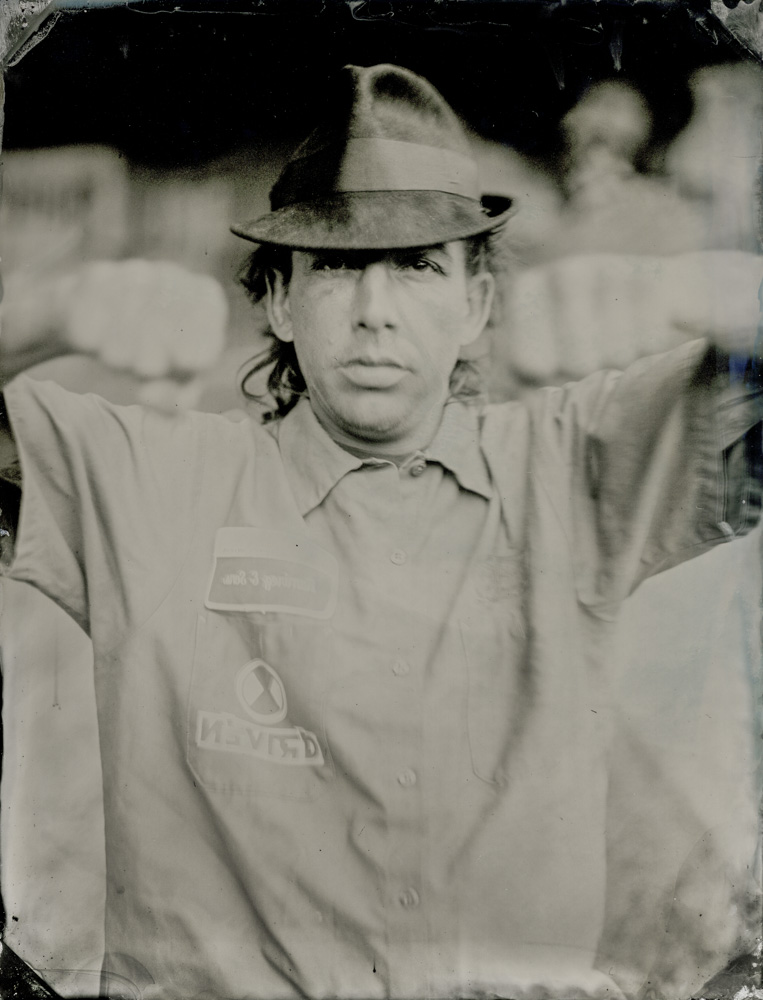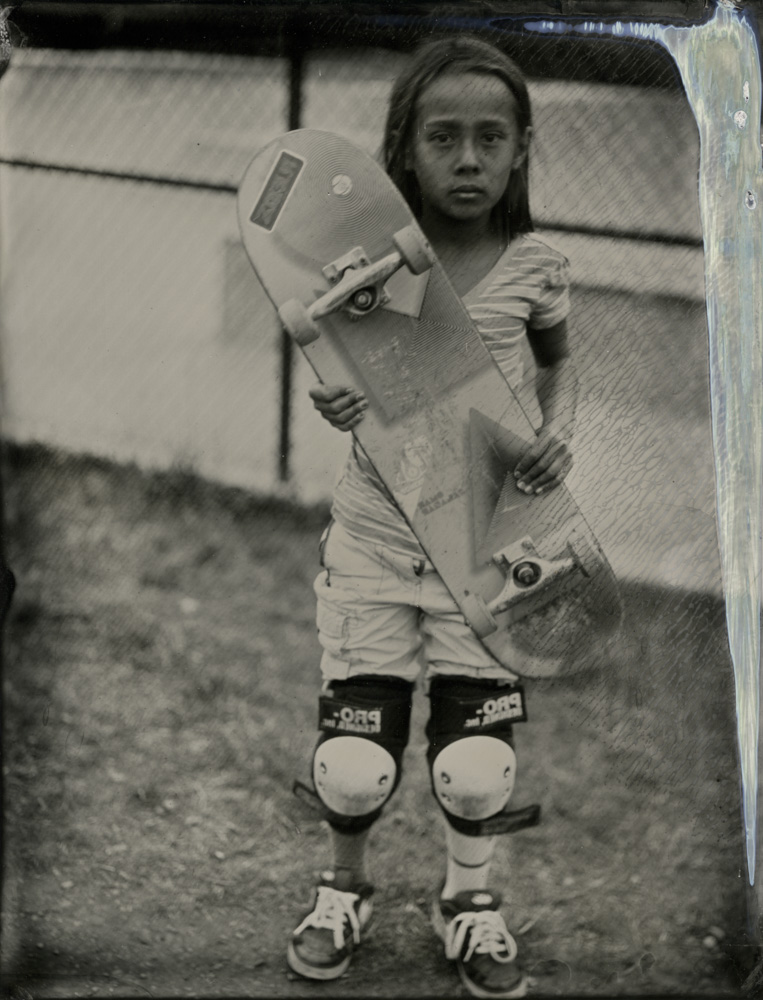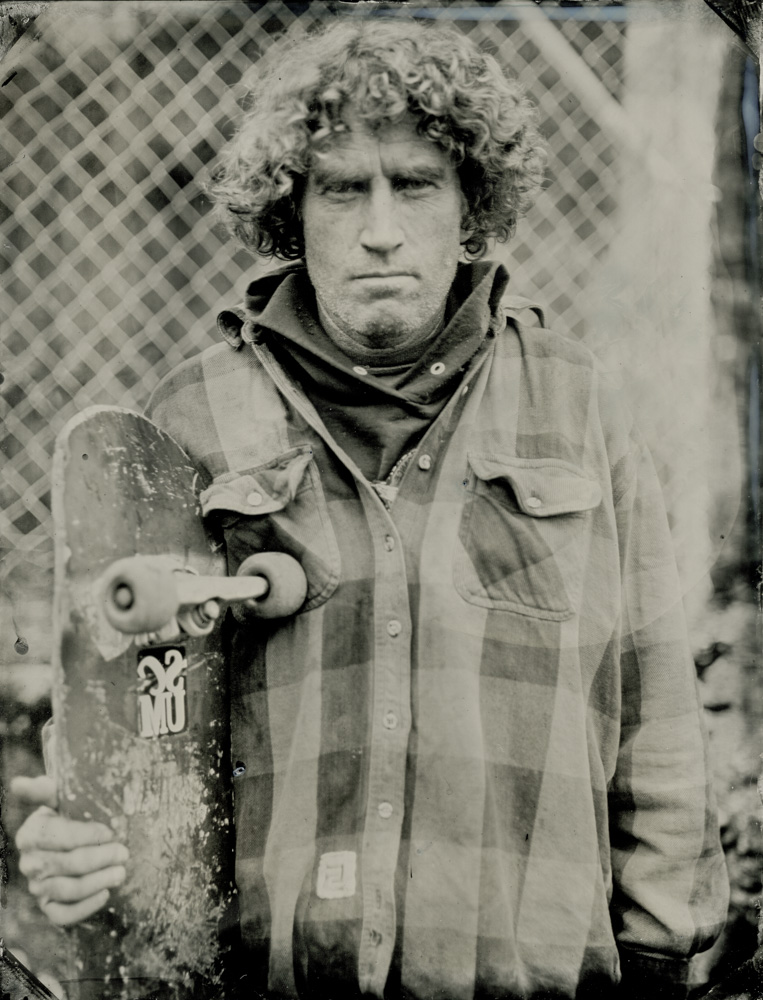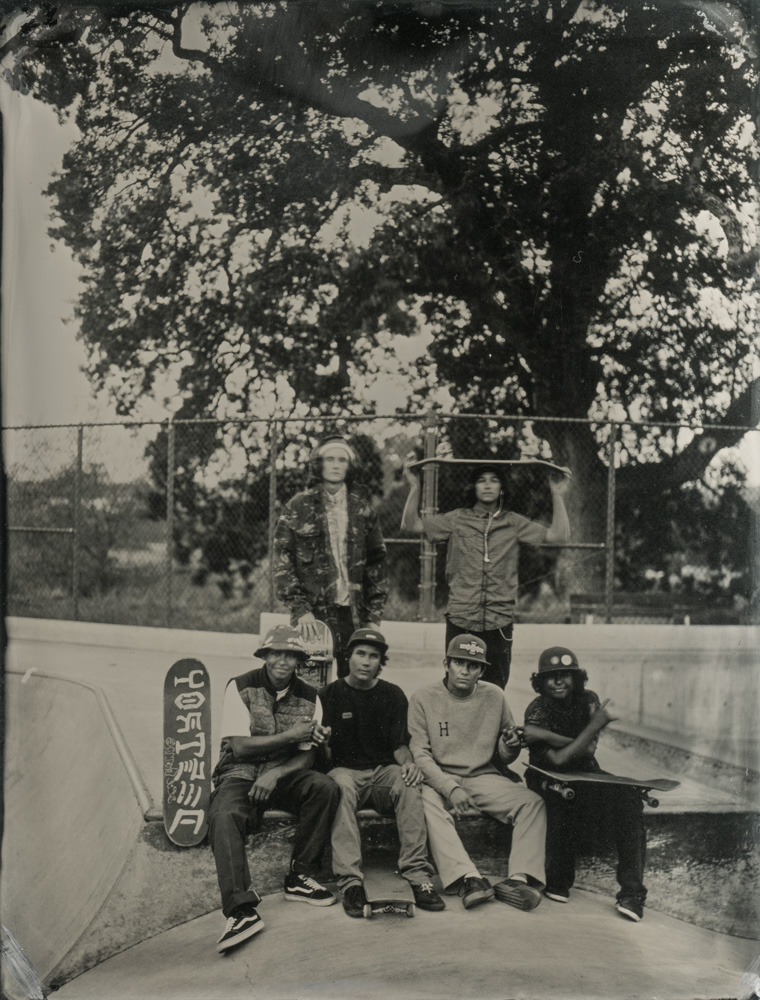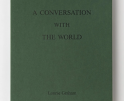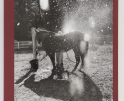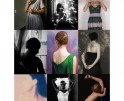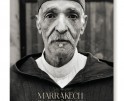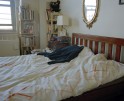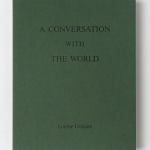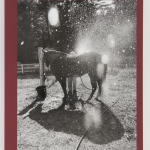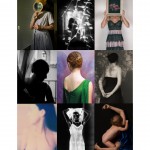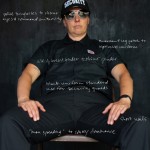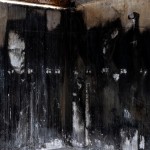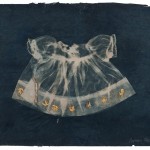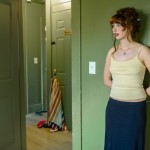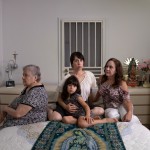Jenny Sampson: Skaters
I had the pleasure of meeting Jenny Sampson at Photolucida last April. She brought a stellar portfolio of wet plate collodion tintype portraits of skateboarders–the process a perfect reflection of the gritty street activity that draws an interesting community of athletes. Jenny also shared that she was releasing a monograph of Skaters: Tintype Portraits of West Coast Skateboarders, through Daylight Books, coming out this Fall. The book has just been made available and it reflects her commitment to the skater community by using a large format camera and portable darkroom at skate parks in California, Oregon and Washington. The book includes a foreword by Bret Anthony Johnston and essay by Joel Rice.
There are lots of opportunities to attend one of her book signings and/or lectures. Tonight is a Book Launch Party in Oakland at the Telegraph Beer Garden from 6pm – 9pm and coming up, the Atlanta Photo Book Fair, Hathaway Contemporary Gallery, Saturday, October 13–Talk and slideshow (12:00 pm) and book signing (2pm), Gray Loft Gallery, Oakland, October 19, 6:30 – 8:30. Book signing and pop-up exhibition, Elliott Bay Book Company, in Seattle, WA, Friday, October 27 at 7:00. Talk, slideshow and book signing, Green Apple Books, San Francisco. in late November (29 or 30), 7pm. Talk, slideshow and book signing. Books can be purchased on her website, in local bookstores, at Daylight Books, and Amazon. She will also will be having a pop up exhibition and book signing in New Orleans during PhotoNola at 811 Piety, on Friday and Saturday, December 8 and 9, New Orleans. The reception will be on Friday night December 8 with live music exhibition and book signing as well as exhibition and book signing all day on Saturday the 9th.
Jenny Sampson lives in Berkeley, California and received a B.A. in Psychobiology in 1991 at Pitzer College. She dedicates her time to her photographic endeavors: wet plate collodion and traditional black and white photography. As a related chemically creative pursuit, she cooks professionally, maintaining an honest, nuanced style and free-spiritedness throughout it all. Jenny has exhibited her work in the United States, United Kingdom and has been published in SHOTS Magazine, Visual Communications Quarterly, Blues Review and the Seattle Post-Intelligencer. Her work is included in the Candela Collection and other private collections. A monograph of her Skater tintype portraits is being published in the Fall 2017 by Daylight Books.
Skaters
I used to ride my bike past a skatepark on my way to work. I wanted to photograph the skaters who hung out there –they looked so connected and like they were having so much fun. I thought of skateboarders as a rebellious crowd and I wanted to be a part of that, but I didn’t know how to enter their world. Years later, I learned the wet plate collodion process to make tintypes and eventually built a portable darkroom. For the obligatory testing of my new darkroom, I subconsciously headed to the Berkeley skatepark. The wet plate collodion process consequently became my reason and excuse to finally go to the skate park and photograph.
When I made my first skater tintype in 2010, I was immediately struck by the beauty and bond of merging a contemporary culture with a 160 year-old photographic process. As I observed and interacted with skaters from varying communities, I quickly identified a depth to this culture that had been lurking just under the surface, which inspired me to keep making these photographs.
Going to skateparks, meeting skaters and making tintypes is intimidating and exhilarating. Approaching a group of strangers who are intent on doing their thing, skeptical at times of onlookers, puts me outside of my comfort zone. There are easier days and harder days. People notice me, but they don’t necessarily approach me, nor I them. I don’t want to break their momentum or interrupt their focus; I must overcome my inhibition. I have to get their permission as well as give myself permission to interact. When this boundary is broken, the reciprocal interest is clear and I often learn they have been as curious about me as I them.
Many of the skaters I’ve met have never seen anything but a digital camera. When I make their portraits, they watch as their ghostly faces magically appear on the metal plate, the blue cast of silver cyanide dissipating in the fixer. They call my equipment “old school;” the plates I make, “sick.”
Employing a large format camera in combination with the wet plate collodion photographic process demands a subject to be stationary for a prolonged time. The sitter must remain motionless for over 30 seconds –easier said than done and harder still without smiling. Most people’s learned reflex when sitting in front of a camera is to smile, portraying some sort of artificial moment of photographic happiness. When I ask my subjects not to smile, there is often a sense of surprise and relief –even the from the most subversive skater. Beyond this request, the choice of pose is theirs. The resulting tintype portraits radiate a unique honesty not often found in modern, faster processes, offering a glimpse beyond their image and possibly into character: pensive, tough, innocent, anxious, distracted, playful.
Over the decades, skaters have been viewed as a rebellious group by many. Their dress; the noise they make rolling down the streets; their use of buildings, benches, walls and rails as their playfield. All of this has somehow been exemplary of non-conformist behavior. However, as I have progressed through this body of work, I have been moved and inspired by these skaters’ unflinching determination. They fall, they get up, they fall again, and again and again. There is a lot of pain. Skate or die. And there is endless camaraderie, openness, creativity and support. Is this “rebellion?”
This behavior –this rebelliousness is what I craved when I was young. What I have come to realize as I watch skaters now, is that I still crave this. But what “this” is, is an obsession, a determination. I admire this quality. Perhaps I have it, too, rebelling against the status quo of digital photography. Instead of moving to binary code from a fast, hand-held film camera, I made a U-turn to the past, to a photographic process that requires a tripod, a lengthy set up and a car full of equipment; mixing raw ingredients to create chemistry that can change its mood depending on the direction of the wind. Perhaps wet plate collodion is my rebellious, non-conformist sport, my skateboarding.
I’d like to thank every skater I have encountered on this journey for welcoming me into their community and trusting me to look and listen, allowing me to share the ride. Their obsession –my obsession. – Jenny Sampson
Posts on Lenscratch may not be reproduced without the permission of the Lenscratch staff and the photographer.
Recommended
-
Lonnie Graham: A Conversation with the WorldFebruary 27th, 2026
-
Cheryle St. Onge: Calling the Birds HomeFebruary 23rd, 2026
-
Femina at Gallery 169February 20th, 2026
-
In Conversation with Louis Jay: Marrakech Face to FaceFebruary 15th, 2026
-
Review Santa Fe: Ilana Grollman: Just Know That I Love YouFebruary 10th, 2026

